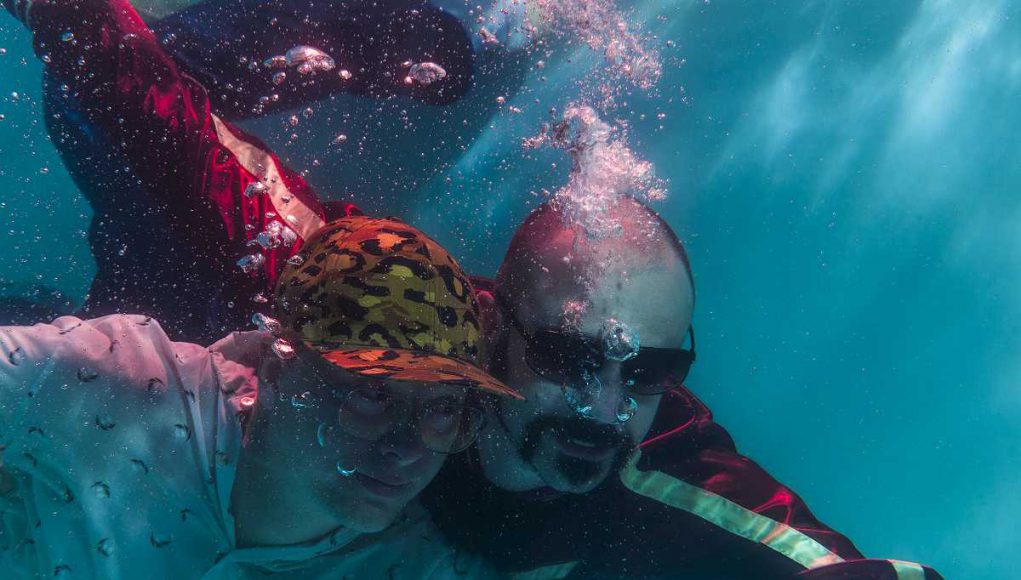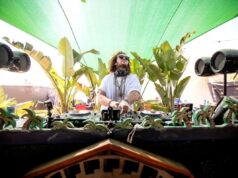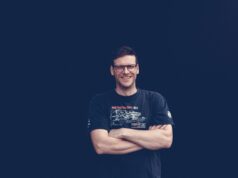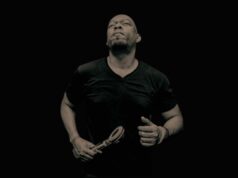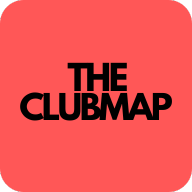Following their Kosmoclub releases, which served as a refined, retake on the Kosmopop album, reworking tracks into more rugged, club friendly versions after performing them live. Berlin based Psycho and Plastic sat down with The Club Map to chat!
What was the inspiration behind the Kosmoclub EP’s?
Around the time we released our album Kosmopop in 2017, we started to play more and more in clubs. Playing in front of dancing crowds and in between DJs profoundly changed our live sets. So did witnessing the DJing prowess of our friend Der Schmeisser from Kassel and having lots of conversations with him about what makes a good club night, party, set or track. Of course other DJs also played their part in that.
All the valuable lessons we learned from that inspired us to rework and remix our tracks while playing live. We started experimenting with different structures and dynamics, always on the hunt for those magic moments when things just click with the crowd.
Next we developed the wish to reflect this experience in our productions. On the one hand, we wanted to conserve this aspect of our music making. Up until recently you could only hear it in our live sets. And on the other hand, we wanted to take things full circle and be able to hand these new versions over to DJs.
As things go, the tracks changed once again when we took them back to the studio, because different environments bring out different aspects of our creativity. And different tasks – playing live versus producing tracks – require different methods.
During our studio period, we also discovered Todh Teri’s amazing Deep In India releases. The way these tracks manage to work as great dance music while staying mind-blowingly out there had a significant influence on what we ended up doing!

So can we expect more magic stuff like this from you guys? What’s coming up next?
Of course you can! Right now we are working on a remix for the legendary Jewish-Canadian accordion player and singer- songwriter Geoff Berner. With this remix we are aiming to make an anti-fascist rave anthem. Let’s see how that works out.
It’s for the eponymous title track of Geoff’s upcoming album Grand Hotel Cosmopolis and it will be out in autumn.
You have recently done a tour of Canada! How was that?
Canada was terrific! It’s already been our second tour there and we can hardly believe how many amazing humans we keep meeting. Everyone was welcoming, open and friendly towards us, audiences, promoters and musicians alike. So it turned out to be a super fun trip for us.
To add to the overall sense of adventure, we played in quite a different context from the club setting described earlier. The Canadian West Coast has a thriving and diverse roots music scene and lots of boutique festivals with a strong sense of community. There’s a spirit of collaboration that stems from folk music roots and hippie ideals. We felt like we were invited right in. People saw us as representatives of electronic music and club culture from Berlin.
The level of musicianship there is unbelievably high and inspiring, no matter the style. We met some new friends and are already making plans for future collaborations across genres.
It sounds like you really got in with the locals! Will you be setting up a studio over there anytime soon?
Thankfully, BC has an amazing infrastructure of independent studios, probably due to its world-class music funding. Our friend Rae Spoon, who runs our Canadian partner label Coax records, operates their own studio, as do many others. Several people already invited us to their studios next time, so we’re in a very lucky position. Figuring out how and when we can stay long enough to make that happen is challenging enough without setting up our own place over there – yet.
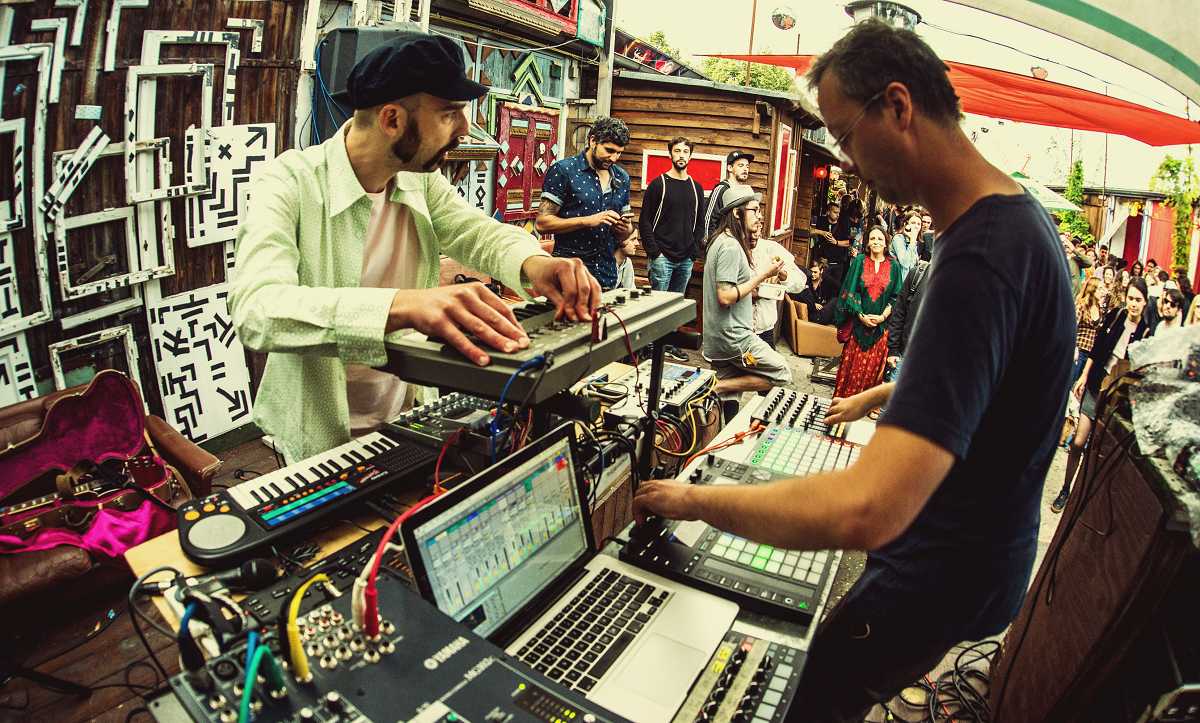
You used a lot of organic percussion, how did you decide what you wanted to use? How did you record it?
First of all we have this long running ethos of making our own sounds. We never use presets or samples and just love recording, synthesizing and generating our own unique material. Sound research is actually a major part of what we do.
Second, we also have gathered quite a collection of hand percussion over the years from the music workshops we regularly teach. They can really help people to form an understanding of rhythm and groove through the movement of their body. That’s the base of it all, even if their goal is producing beats.
Since we like trying new things, we decided to use these percussion instruments to our advantage. We took turns playing patterns on instruments we thought would fit in nicely with all the other sounds of a track. Of course a bit of trial and error never hurt.
For recording, we fed a large diaphragm condenser microphone through an analogue filter and a saturator. While one of us played, the other one set the levels and tweaked the sound to our liking.
Seems you have a great collaborative work style! Is there any moments where you really disagree strongly on stuff and either one of you throw your toys out of the pram?
In one capacity or the other, we’ve been working together for a full ten years now. That gave us plenty of time to grow out of the pram and move past those antics. Being the borderline perfectionists we are, we learned pretty quickly that both of us have to be 100% happy with what we do. Otherwise the musical result will suffer. So we grant each other individual veto rights on just about everything. And we do exercise those rights, as tough as it sometimes gets!
If we get stuck too deep in the decision making process, our strategy is to leave the studio, take a walk and find a nice place to eat. Then we come back rested and energised to tackle the issue from a new angle. Depending on the time of the day, cake can work wonders, too.
“Spacecraft” has quite a dubby feel, was this intentional?
It was indeed intentional! We love dub and dub-influenced electronic music, from Lee Perry and Mad Professor to Pole, dub techno etc, we quite often make use of dub elements in our denser pieces.
Upon hearing some of the individual tracks from Spacecraft, our friend and label accomplice Ben encouraged us to draw more attention to those elements. It was actually his idea that we should strip the production down and make a dub version or a DJ tool.
Divine Dub from Kosmoclub 2 came about similarly. Dub elements are great for really playing with sounds and for featuring our love for delays, reverb and spaced out psychedelic noises.
You’re known for doing a very live ‘live show’ what do you consider the core elements to a great live show?
Apart from keeping everyone on their feet, dancing ecstatically? First and foremost, actual live performance! To us it’s very important to show that we do play live. Sometimes an instrument can already communicate that, like playing a synth or guitar. Other times it’s about finding relatable gestures that correspond to sounds.
As any good performance, a great live show also relies on skill, on knowing your tools well and having a purpose. Be aware of what you’re doing and where you want to go with it, musically speaking. Plenty of live experience is a crucial factor here. No amount of rehearsing can replace what you learn from playing in front of people. That’s why we love to play out as much as possible and can never get enough of it.
All that said, we strongly believe in balancing knowledge and skills with a healthy dose of risk taking. You need to be spontaneous and open. Push yourself and allow for accidents to happen, they might take you into amazing new territory.
A great sound system is also essential. Ideally, there’s plenty of headroom to accommodate the wider dynamic range of live acts. A live set should sound as powerful and punchy as possible so nobody loses their step because of a noticeable drop in sound levels.
Do you find you have to use more pre processed sounds to enable you to uphold the powerful and punchy consistency you speak of, or do you have a special live rack that you take with you to gigs?
Some sounds are processed, some are raw. It’s a mix of both, really. And there’s a lot of live tweaking going on, too. So we can react to the location and what it requires in terms of EQs, levels, balancing and so on. There’s no special live rack or magic box involved, just our instruments and a sub-mixer each.
We both used to play in bands when we were younger and still love that raw energy that tells you straight away you’re witnessing a live performance. So we try to incorporate some of that in our live sets, too.
But it’s an ongoing process and we’re always curious to check out other live acts and learn how they handle their sound. Our personal benchmark in the field is currently set by fellow Berlin based-duo Instant, who manage to sound simply spectacular wherever they play.

